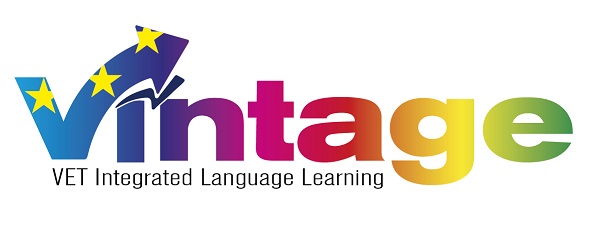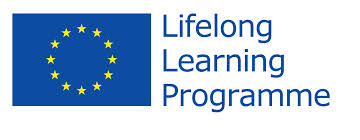Vintage - 2014-2016


- Scope
- Objectives
- Results
- Experimentation
- European networks
- French networks
- Publications & Presentations
I. Scope
Migrations and mobility of the workers play a fundamental role in fostering a flexible and competitive job market at the European level. In order to reach the objectives defined by the Europe 2020 Strategy, making social cohesion and an inclusive society two pillars of EU competitiveness, migrants and mobile workers have to play not only their role as additional workforce to be exploited according to economic needs, but the role of protagonists in the social and professional arena; in other words they should be able to act as “European citizens”, having equal opportunities of professionalization, in the hosting society. Communication and linguistic skills are the basis of mutual understanding and interaction, therefore an asset for gaining citizenship rights and professional development. They enable a good integration between local populations and foreign people, letting intercultural dynamics and encounters be elaborated in a balanced way by all components of the society. At the same time, in the job market grows the importance of communication skills. Globalization of migration flows hamper the traditional use of common languages spoken by migrants in order to manage ordinary communication and cooperation at the workplace. New organizational patterns, and new technologies determine a parallel increase of linguistic skills required by any kind of workers, even low qualified – both considering understanding, reading and speaking, but also a certain mastery of written communication, related to the pervasive use of reporting, data storage, feed-backs.
II. Objectives
Language learning, as any human learning activity, clearly depends on diverse dimensions and triggers:
- from cognitive potentialities and personal learning styles (it implies the need of differentiating training offers according to divergent needs),
- from affective dimensions and motivations (learning always depends from proximity of learning achievements to interests and preoccupations of the learners, as well as to his/her participation to the definition of achievable and shared learning outcomes),
- from relational and social enablers of learning (being the interaction a critical dimension playing a role of the utmost importance in language learning).
We should move from a mere “training perspective”, implying consolidated didactical strategies, towards a “learner centered” one. This conceptual and practical shifting could enable innovative approaches to language learning, capable of making it more effective and adequate to a rapidly changing context, both considering needs emerging in the companies, and expectations of the learners.
III. Results
From the operative point of view, the project aims at designing and testing (using English as a work language, French, German and Italian as target languages):
- an innovative learning approach
- A workbased / workplace learning program
- A flexible model for designing and planning learning (focusing on competences from A1 to B1)
- assessment (summative) and formative evaluation procedures
- a comprehensive set of resources and qualification means for teachers and trainers, organized in a Resource Centre.
- Dissemination will cover the European dimension.
IV. Experimentation
workshops offered at the Cité des Métiers in the framework of the partnership implemented since 2012: 8 clubs in 2014 & 8 clubs in 2015
a workshop of French experts in the linguistic learning in May 2015 at the Cité des Métiers
a EU conference held in Paris in October 2015
V. European networks
VI. French networks
professionals in the field of migration
professionals in the field of language learning
VII. Publications & Presentations
a project website
a collaborative platform- a resource centre
a leaflet
articles
← Back






















